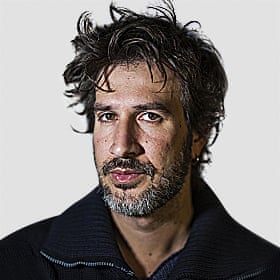|
IDF restricts media coverage of soldiers to protect them from risk of legal action | Israel The Israeli military has placed new restrictions on media coverage of soldiers on active combat duty because of growing concern about the risk of legal action against reservists travelling abroad over allegations of involvement in war crimes in Gaza. The move came after an Israeli reservist vacationing in Brazil left the country abruptly when a Brazilian judge ordered federal police to open an investigation following allegations from a pro-Palestinian group that he had committed war crimes while serving in Gaza. Under the new rules, media interviewing soldiers of the rank of colonel and under will not be able to display their full names or faces, similar to the rules that already exist for pilots and members of special forces units, Lt Col Nadav Shoshani, an Israeli military spokesperson told reporters. The interviewees must not be linked to a specific combat event they participated in. “This is our new guideline to protect our soldiers and to make sure they are safe from these types of incident hosted by anti-Israel activists around the world,” Shoshani said. He said that under existing military rules, soldiers were already not supposed to post videos and other images from war zones on social media “even though that’s never perfect and we have a large army”. There were also long-standing rules and guidelines for soldiers travelling abroad, he said. Shoshani said activist groups, such as the Belgium-based Hind Rajab Foundation, which pushed for the action in Brazil, were “connecting the dots” between soldiers who posted material from Gaza and then posted other photos and videos of themselves while on holiday abroad. Last year, the international criminal court issued arrest warrants against the Israeli prime minister, Benjamin Netanyahu, and former defence minister Yoav Gallant, as well as a Hamas leader, Ibrahim Al-Masri, over alleged war crimes in Gaza, drawing outrage in Israel. Shoshani said there had been “a handful” of cases where reservists travelling abroad had been targeted, in addition to the case in Brazil, all of which had been started by activist groups pushing authorities for an investigation. “They didn’t open an investigation, they didn’t press charges or anything like that,” he said. Source link Posted: 2025-01-09 00:26:35 |
Morrisons issues warning to Christmas shoppers as deliveries are delayed
|
|
Fortnite down - When downtime starts and servers are back online for update 33.20 | Gaming | Entertainment
|
|
Biden’s last-minute pardons draw ire from both sides of political divide | Joe Biden
|
|
Trump reportedly picks China critic Mike Waltz as national security adviser – US politics live | US elections 2024
|
|
Judd Trump pulls out of Scottish Open just days after winning UK Championship | Other | Sport
|
|
Mary Berry’s one-pot sausage bake is ‘so quick and easy’ it’ll become a ‘family favourite’
|
|
Moldova’s president wins western praise for election triumph | Moldova
|
|
